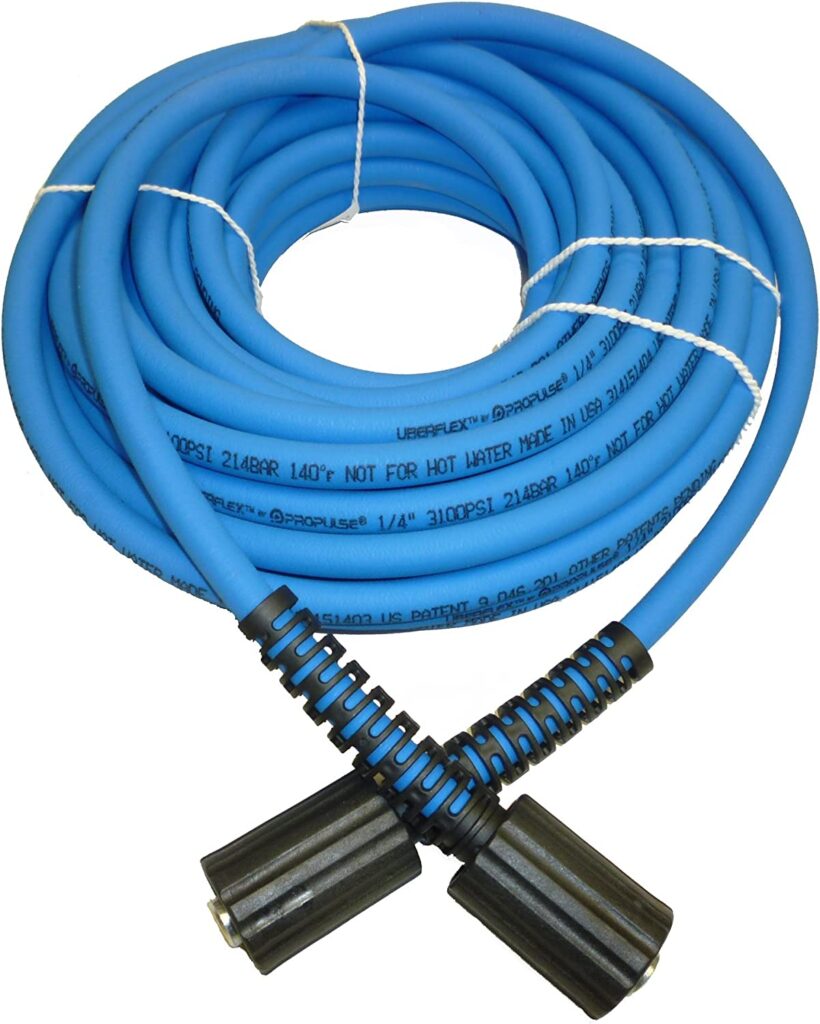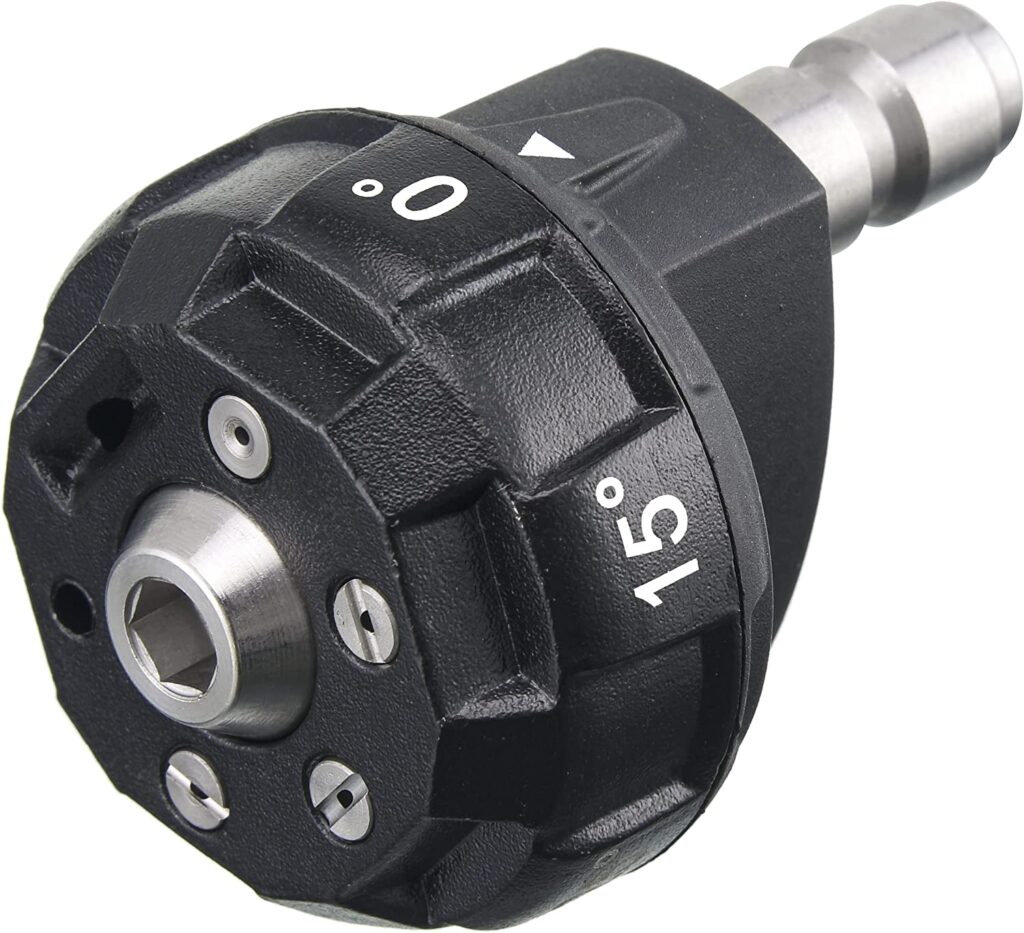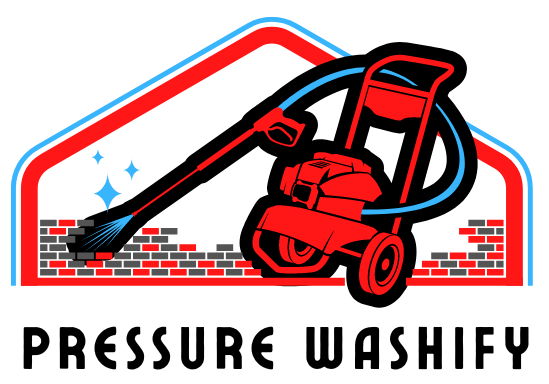Affiliate Disclaimer: This post may contain affiliate links, meaning we get a commission if you decide to make a purchase through our links, at no extra cost to you.
Have you ever wondered if air hoses can be used with pressure washers? We’re going to explore two intriguing options that just might pique your curiosity:
1) using an air hose directly with a pressure washer instead of the typical pressure washer hose, and
2) crafting a DIY pressure washer using an air compressor.
Air Hoses VS Pressure Washer Hoses

Air Hoses: Designed for Lower Pressure Applications
They are primarily used with air compressors, generating lower pressure levels than pressure washers.
The typical pressure range for air hoses is between 90 to 150 PSI. As a result, the materials used in air hoses are designed to handle this lower pressure range.
Common materials used in air hoses include:
- PVC (Polyvinyl Chloride): PVC is a popular choice for air hoses due to its flexibility, affordability, and resistance to abrasion. However, PVC may become stiff in colder temperatures and is not suitable for high-pressure applications.
- Rubber: Rubber air hoses are known for their flexibility, durability, and resistance to kinking. They can handle higher pressure levels than PVC hoses but are still not suitable for pressure washer applications.
- Hybrid: Hybrid air hoses combine the benefits of both PVC and rubber materials, offering flexibility, durability, and resistance to kinking. While they can handle slightly higher pressure levels than PVC hoses, they are still not designed for pressure washer use.
Pressure Washer Hoses: Built for High-Pressure Demands
Pressure washer hoses are designed to handle the high levels of pressure generated by pressure washers. Their Pressure levels can range from 1,300 to 3,000 PSI or higher for more powerful models.
Materials used in pressure washer hoses must be able to handle high pressure. At the same time, they need to be flexible and durable.
Common materials used in pressure washer hoses include:
- Thermoplastic: Thermoplastic hoses are lightweight, flexible, and resistant to kinking, abrasion, and weathering. These hoses can handle high-pressure levels and are commonly used in residential pressure washers.
- Rubber: High-pressure rubber hoses are more heavy-duty and durable than their air hose counterparts. They offer excellent flexibility, and resistance to kinking, and can handle the high-pressure levels required for pressure washer applications.
- Wire-Braided: Wire-braided hoses feature a layer of steel wire braiding that offers additional reinforcement and durability. These hoses are highly resistant to abrasion, and kinking, and can handle extremely high-pressure levels, making them suitable for heavy-duty pressure washing tasks.
Why Using an Air Hose for a Pressure Washer is Not Recommended
Although it might seem like a convenient idea, there are several factors that make this a risky and potentially dangerous choice.

1. Inefficient Cleaning Performance
Air hoses are not designed to deliver the same level of water flow and pressure as pressure washer hoses, which could lead to a less effective cleaning process.
This means that you might end up spending more time and effort trying to achieve the desired results, making the entire process less efficient.
2. Pressure Requirements
The air hose is not suitable for a pressure washer. This is because of the big difference in pressure requirements. Air hoses are designed for air compressors with lower pressure levels. These levels usually range from 90 to 150 PSI (pounds per square inch).
Pressure washers require higher pressure levels than other machines. This pressure is usually between 1,300 and 3,000 PSI. For more powerful models, the pressure is even higher.
Using an air hose that’s not designed to handle such high pressure can lead to damage to the hose itself and create a potential safety hazard.
3. Potential Risks and Dangers
As mentioned earlier, using an air hose for a pressure washer can pose risks to both your equipment and personal safety. The pressure from a pressure washer can be too high. This can cause the air hose to burst.
Bursting of the air hose can lead to potential injuries or damage to your property. Additionally, the air hose reel might not be able to withstand the high pressure, resulting in breakage and further safety hazards.
Alternatives to Using an Air Hose for a Pressure Washer
Proper Pressure Washer Hoses

Pressure washer hoses come in a range of lengths and diameters. This allows them to be used with different pressure washer models and cleaning tasks. The material used is strong enough to cope with high-pressure levels.
A proper pressure washer hose is essential. It ensures that your pressure washer runs at its optimal performance.
We recommend the UberFlex pressure washer hoses for optimal cleaning and long life. Read our review here.
Compatible Attachments and Accessories
To further enhance your pressure washing experience, consider investing in compatible attachments and accessories designed for your pressure washer.
Different nozzle types can be used for different cleaning tasks. Surface cleaners are great for cleaning large flat areas. Extension wands are useful for reaching high or hard-to-reach places.
Use a 6 in 1 changeover nozzle like the JoJet 6 in 1 nozzle for ultimate flexibility.
A Step-by-Step Guide to Creating a DIY Pressure Washer Using an Air Compressor
Want to clean surfaces with pressurized water but don’t have a pressure washer? You can make your own DIY pressure washer using an air compressor.
It is important to note that this method is not as efficient as a dedicated pressure washer. When using pressurized equipment, safety precautions must be followed.

1. Gather the necessary equipment:
- An air compressor with a pressure regulator
- A double inlet spray gun or a pressure washer attachment for air compressors
- A garden hose
- An outdoor faucet
- An air hose
2. Set up the air compressor:
Place the air compressor on a flat, stable surface near an electrical outlet. Plug in the air compressor and adjust the pressure regulator to a safe level (usually between 40 to 50 PSI).
3. Connect the air hose to the air compressor:
Attach one end of the air hose to the air compressor’s outlet, ensuring a secure connection.
4. Connect the garden hose to the outdoor faucet:
Locate an outdoor faucet and connect one end of the garden hose, ensuring a tight fit.
5. Connect the garden hose to the double inlet spray gun or pressure washer attachment:
Attach the other end of the garden hose to the water inlet. This could be either the double inlet spray gun or the pressure washer attachment. Make sure the connection is secure.
6. Connect the air hose to the double inlet spray gun or pressure washer attachment:
Attach the air hose to the air inlet of the double-inlet spray gun or the pressure washer attachment. Ensure a tight and secure connection.
7. Turn on the air compressor:
Activate the air compressor and allow it to build pressure. Monitor the pressure gauge to ensure it stays within the safe operating range (40 to 50 PSI).
8. Turn on the water supply:
Open the outdoor faucet. Let the water flow through the garden hose. Connect the garden hose to the double-inlet spray gun or pressure washer attachment.
9. Begin pressure washing:
The air compressor is running and water is flowing through the double-inlet spray gun or pressure washer attachment. You are now ready to start pressure washing.
Remember to follow safety precautions, such as wearing protective gear and keeping a safe distance from the surface you’re cleaning.
10. Turn off the equipment:
After completing your pressure washing tasks, turn off the air compressor and water supply. Disconnect the hoses and store them safely.
Final Thoughts
It is not recommended to use an air hose for a pressure washer. This is because they have different pressure requirements. Additionally, there are potential risks and reduced cleaning efficiency.
You can make a DIY pressure washer with an air compressor and an air hose. However, it won’t be as powerful as a dedicated pressure washer. Keep this in mind.
However, it can still be a useful alternative for lighter cleaning tasks when a pressure washer is unavailable. Always prioritize safety and use the proper equipment when working with pressurized tools.
Frequently Asked Questions: Can You Use Air Hose for a Pressure Washer?
Q: Can I use an air hose reel for my pressure washer?
A: Although it might be tempting to use an air hose reel for your pressure washer, it’s not recommended. Air hose reels are designed to handle the lower pressure of air compressors, while pressure washers require much higher pressure to function effectively. Using an air hose reel with a pressure washer could lead to damage to the hose or reel, as well as potential safety hazards.
Q: Can using an air hose with a pressure washer damage my equipment?
A: Yes, using an air hose with a pressure washer can potentially damage your equipment. Air hoses are not designed to handle the high pressure and flow rates of water that pressure washers require, which can cause leaks, ruptures, or other damage to your air hose and pressure washer. It’s best to use the proper equipment designed for pressure washing tasks.
Q: Are there any other risks associated with using an air hose reel for a pressure washer?
A: Yes, using an air hose reel for a pressure washer can pose risks to both your equipment and personal safety. The high pressure from the pressure washer can cause the air hose to burst or the reel to break, leading to potential injuries or damage to your property.
Q: Can I modify an air hose reel to work with a pressure washer?
A: While it might be possible to modify an air hose reel to handle the pressure from a pressure washer, it’s not recommended. The modification process could weaken the reel’s structure, and it still may not be able to handle the high pressure properly. It’s always better to invest in a hose reel specifically designed for pressure washers to ensure safety and reliability.
Q: Where can I find a suitable hose reel for my pressure washer?
A: You can find pressure washer hose reels at most home improvement stores, as well as online retailers that specialize in pressure washing equipment. Be sure to choose a reel that is compatible with your pressure washer’s hose length and pressure rating.










